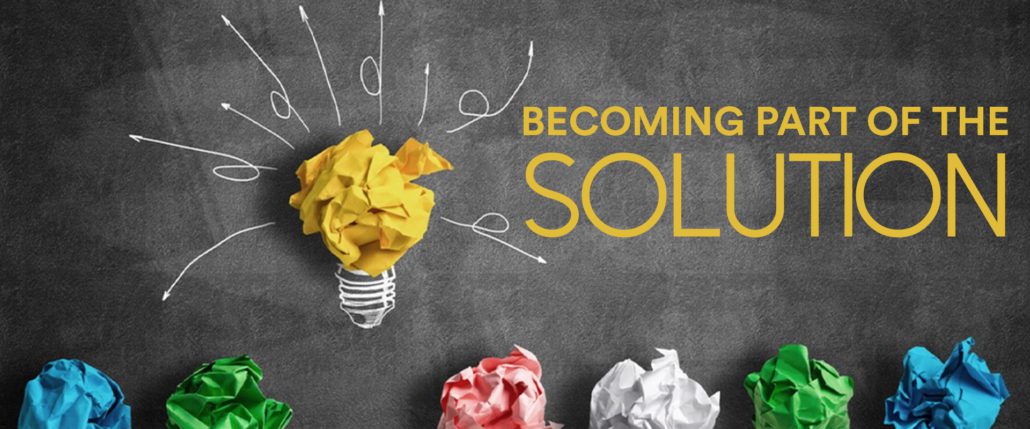
Becoming Part of the Solution
Maya Angelou wrote, “Do the best you can until you know better. Then when you know better, do better.” I find these words to be powerful for two reasons. First, they help us have self-compassion for our past mistakes with an understanding that we may not have been able to do better at the time. Secondly, they are a directive to take accountability in the responsibility of actively becoming part of a solution. As a therapist, I use this quote by Ms. Angelou to both encourage clients to forgive themselves for poor choices made in the past while also inspiring them to take action to “do better” in the present. These words have also helped me personally, as I reflect upon my history of making changes to stop perpetuating anti-gay and anti-transgender messages and instead become part of the solution.
In the late 1980’s, I was in Middle School in Missouri (or Junior High, as it’s called there.) In my class, there was a boy brave enough to stand apart from the crowd in his self-expression. Although boys in our school were expected to be obsessed with the Cardinals baseball team and wear related attire, he chose to wear gender fluid clothing and even eyeliner instead. He was someone who would be referred to as “emo” today and as “alternative” back then. Most people assumed that his appearance meant that he was gay. So, he was bullied for his unique self-expression: called hurtful names, laughed at, and ultimately even physically attacked. The principal called him and his mother into the office but unfortunately blamed the victim. The boy was told that, if he dresses in such ways and wears makeup to school, he is inciting violence and “asking” for abuse. The principal asked that he either conform to a “normal” gender expectation or transfer to a different school. Not compromising his self-expression, he and his mother chose for him to transfer.
At the time, I was secretly questioning my sexual orientation and was absolutely terrified that peers would learn my secret. As I heard the horrible things being said to this boy, I did not defend him. In fact, I joined in the laughter, no matter how awful it felt inside. It was a way for me to stay hidden – a way to stay safe. I did not witness the physical attack, but I certainly heard about it and how the boy was assigned blame for it by the administration. The awful message that I received was that if I honestly expressed myself in my unique differences, I would also be bullied, violently attacked, and maybe even kicked out of school. I went deep into the metaphorical closet and did not emerge from it for many years.
Ultimately, my personal journey led not only to me coming out as a gay man, but to a career of standing up for other such youth in the Kaleidoscope Program. As Maya Angelou’s forgiving words attest, I wasn’t able to do it back then, but I am able to do so now. I’ve often thought of the boy over the years, the regret I felt for being part of the problem rather than the solution back then, and the yearning to somehow apologize to him for it. Thankfully, I finally got an opportunity to do so this past week.
Classmates posted about a reunion on social media. In the comments, he responded! The pain and trauma that he endured was quite evident. This brave boy had apparently grown into a brave man, and he took this opportunity to call out his bullies. He informed our classmates that he is happily married to a beautiful woman and that they have children. His history of being bullied was an example of how not only LGBTQ kids are bullied, but how those who are perceived to be are as well.
I gratefully took the opportunity to commend his strength (then and now,) explain that I was too scared at that age for peers to know that I thought I might be gay, and apologize for being part of the problem rather than the solution by laughing at him along with the others. I told him about how my professional career is now dedicated to helping other kids who might be going through something similar to what he or I went through.
Then, an amazing thing happened. One of the guys who bullied him added his apology to the comments, writing that he, too, has thought of the boy who he bullied frequently, with regret. He asked for forgiveness on behalf of himself and the others. Like me, others were taking the opportunity to own up to their actions, apologize for them, and strive to do better. Several people wrote about how they are now teaching their children to celebrate those who are different rather than ridicule them for it.
Perhaps you, too, are interested in learning more about becoming part of the solution by creating safe spaces for LGBTQ teens – and for those who are perceived to be – to have the freedom to express their unique selves? Please reach out to us at Kaleidoscope. We would like to assist you in your effort to provide affirming support. Let’s all be a part of the solution together!
*If you are a youth or young adult who is experiencing bullying related to how others perceive your sexual orientation, gender identity, or gender expression, please contact the Trevor Lifeline at 1-866-488-7386 or visit www.thetrevorproject.org for 24/7 support through talk, text, or chat.